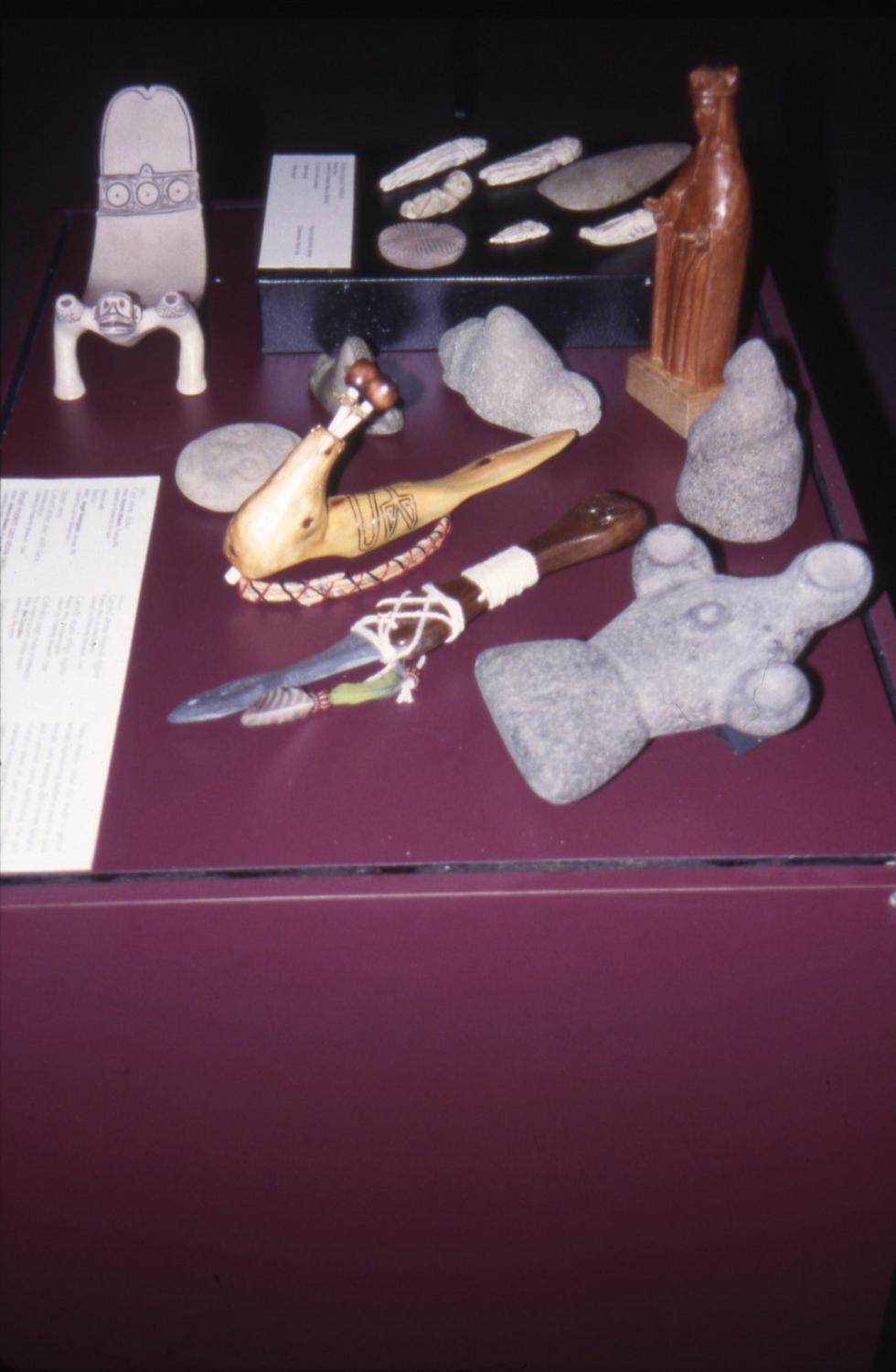Interview with Haydee Montalvo-Feliciano
IntervieweeInterview with
Haydee Montalvo-Feliciano
(Puerto Rican)
InterviewerInterviewed by
Ruth Glasser
(American)
InterviewerInterviewed by
Amanda Rivera-López
TranslatorTranslated by
Ruth Glasser
(American)
Date2000 May 16
Mediumdigitized audio cassette tape
DimensionsDuration (tape 1, side 1): 46 Minutes
Duration (tape 1, side 2): 45 Minutes, 54 Seconds
Duration (tape 2, side 1): 47 Minutes, 12 Seconds
Duration (tape 2, side 2): 47 Minutes, 13 Seconds
Duration (total runtime): 3 Hours, 6 Minutes, 21 Seconds
ClassificationsInformation Artifacts
Credit LineGift of the CHS Exhibitions Department
Object number2013.27.5.1-.2
DescriptionTwo audio cassette tapes of an interview with Haydee Montalvo-Feliciano. Interviewed by Ruth Glasser and Amanda Rivera-López on May 16, 2000. The interview was conducted in Spanish. A transcript of the interview is available in both English and Spanish.
Haydee Montalvo-Feliciano came to the United States in 1956 and lived at 66 Main Street, Hartford. Her older brothers came to the United States in the 1940s to work in tobacco, then later at Weaver's Chicken. Her brothers faced discrimination working at the tobacco farms. The tobacco camps were worked primarily by Puerto Rican and Jamaican immigrants. Her family lived in a barrio of San German, Puerto Rico on a coffee farm. Haydee was the 20th of 22 children. Haydee's mother never attended school, so after coming to the U.S. Haydee would teach her mother about what she learned in school. Once in the U.S. her mother worked as a laundress for the single men who immigrated and needed help. She discusses her family's education and housing situations. She discusses Sacred Heart Church in Hartford.
She discusses how Olga Mele and Father Andrew J. Cooney assisted the Hartford Puerto Rican community.
She discusses her childhood in Puerto Rico living in the country, the games the children played, and where they went to school. She then describes her experience arriving in New York and the differences from Puerto Rico she experienced.
She experienced difficulties in school because she didn't speak much English when she arrived. She explains that she was bullied in school and was nicknamed Ida [in reference to Idaho potatoes] by the other students, rather than addressed by her name, Haydee. She attended Barnard Brown School and Weaver High School. She explains her experience with school.
She discusses the difficulties with the police and the lack of interpreters, which led to one of her brother's being arrested for not wearing a shirt in a grocery store. She worked in a tobacco camp as a teenager, and she discusses the discrimination she saw and experienced there.
She describes her experience working as a volunteer interpreter for the Puerto Rican community. She worked at the municipal hospital in Hartford.
She describes the Puerto Rican radio station in Windsor and the Hispano Market on Park Street in Hartford. She also describes how she met her husband and shared information about his family.
2013.27.5.1a-d: two digital files, J-card, and tape
2013.27.5.2a-d: two digital files, J-card, and tape
Haydee Montalvo-Feliciano came to the United States in 1956 and lived at 66 Main Street, Hartford. Her older brothers came to the United States in the 1940s to work in tobacco, then later at Weaver's Chicken. Her brothers faced discrimination working at the tobacco farms. The tobacco camps were worked primarily by Puerto Rican and Jamaican immigrants. Her family lived in a barrio of San German, Puerto Rico on a coffee farm. Haydee was the 20th of 22 children. Haydee's mother never attended school, so after coming to the U.S. Haydee would teach her mother about what she learned in school. Once in the U.S. her mother worked as a laundress for the single men who immigrated and needed help. She discusses her family's education and housing situations. She discusses Sacred Heart Church in Hartford.
She discusses how Olga Mele and Father Andrew J. Cooney assisted the Hartford Puerto Rican community.
She discusses her childhood in Puerto Rico living in the country, the games the children played, and where they went to school. She then describes her experience arriving in New York and the differences from Puerto Rico she experienced.
She experienced difficulties in school because she didn't speak much English when she arrived. She explains that she was bullied in school and was nicknamed Ida [in reference to Idaho potatoes] by the other students, rather than addressed by her name, Haydee. She attended Barnard Brown School and Weaver High School. She explains her experience with school.
She discusses the difficulties with the police and the lack of interpreters, which led to one of her brother's being arrested for not wearing a shirt in a grocery store. She worked in a tobacco camp as a teenager, and she discusses the discrimination she saw and experienced there.
She describes her experience working as a volunteer interpreter for the Puerto Rican community. She worked at the municipal hospital in Hartford.
She describes the Puerto Rican radio station in Windsor and the Hispano Market on Park Street in Hartford. She also describes how she met her husband and shared information about his family.
2013.27.5.1a-d: two digital files, J-card, and tape
2013.27.5.2a-d: two digital files, J-card, and tape
Label TextListen to interview at http://hdl.handle.net/11134/40002:19645788
NotesSubject Note: Through the Nuestras Historias - Our Stories project, the Connecticut Historical Society collected oral histories and photographs from a few of those who helped establish the Puerto Rican community in Hartford. It was an online exhibition presenting the story through the words and images of the pioneers themselves.Nuestras Historias was funded by the Hartford Foundation for Public Giving, the State of Connecticut, Department of Economic and Community Development, and the Connecticut Historical Society.
Status
Not on view2000 May 10
2000 May 11
5 September 2006
2022 September 29


